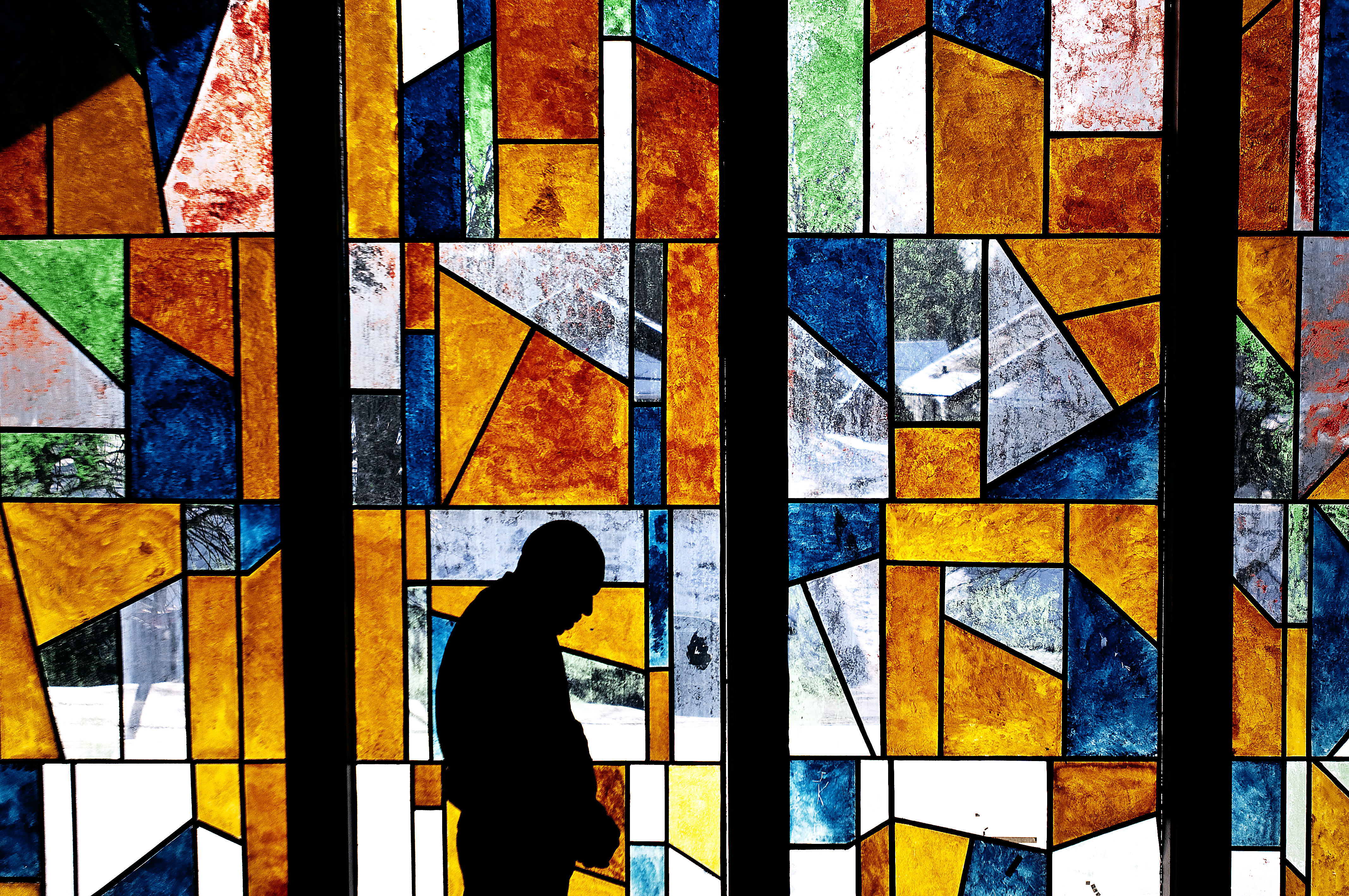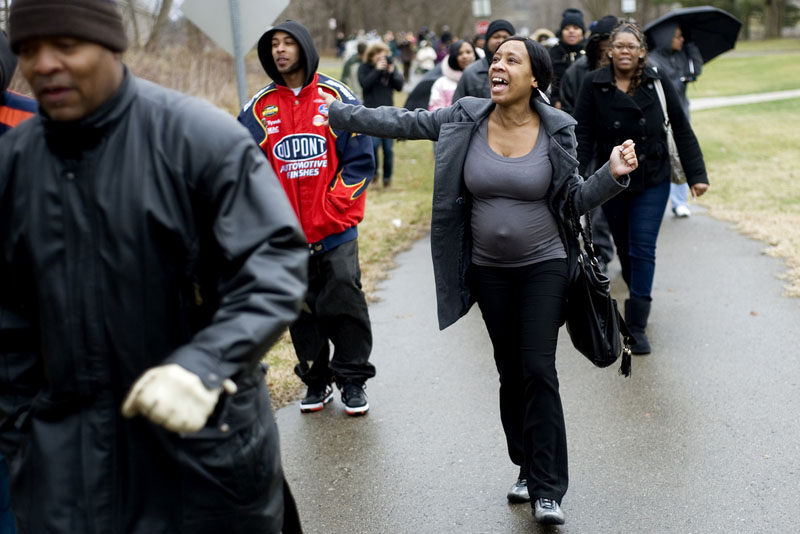A man of strong conviction from Jake May on Vimeo.
He tied his shoes slowly, lace by lace. He buttoned up his jacket with such grace. Life is about the small details that make up the picture, together, everyone sees for this man.
As he put on his dark black hat, a feather protruding from its side, he walked into Second Baptist Church on Martin Luther King, Jr. Day to commemorate a man of strong conviction in Jackson, Mich. A man that he, James Kelley, 64, modeled a living mentality after.
"After he was killed, (the movement for equality) sort of dwindled because you didn't have enough people with the same conviction," Kelley said as he lit up a cigarette in his kitchen. "There are a lot of things that could be done, even today."
 As a child in Jackson, Kelley faced animosity and hatred from neighbors, store owners and many non-black residents. He joined the freedom marches through the city in the '60s, where he saw the most racial controversy to a non-violent pursuit of equality.
As a child in Jackson, Kelley faced animosity and hatred from neighbors, store owners and many non-black residents. He joined the freedom marches through the city in the '60s, where he saw the most racial controversy to a non-violent pursuit of equality.Kelley said he and other men wore baseball gloves to catch and avoid being hit by rocks, bottles and other solid objects thrown at marchers.
"I met such opposition from those who I knew," he said. "I knew there was segregation. I knew that there was differences in people. The hostility seems to elevate. These same people would be your adversaries and your marching for equality.
"Equality is something every man can put his hand on."
Kelley said Martin Luther King, Jr.'s message, purpose and drive showed him that there is always a way to succeed. He said King's stance with a relentless passion for a goal of a better tomorrow stuck with him the rest of Kelley's life.
"If you try, you can do it, you can succeed. Regardless of what anybody says, you can be better today than you (were) yesterday," Kelley said.












